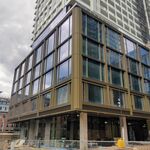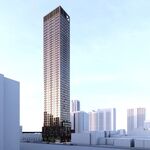Here is the study:
http://www.caamp.org/meloncms/media/Survey1.pdf
significant statistics:
- Roughly 9.1 million homes are owned in Canada. The estimated value of these homes is $2.67 trillion and the total outstanding mortgage principal on these homes is estimated at $739 billion. This means that Canadian homeowners have about $1.93 trillion in home equity, which amounts to 72.3 per cent of the total value of their homes.
- Home equity positions in the Canadian market are about 67 per cent greater than in the United States. The US Federal Reserve reports that of the more than 75 million American home owners, the average equity holding is 43 per cent which is in
contrast to Canada’s average of 72 per cent equity in their homes.
- Roughly 9.1 million homes are owned in Canada. The estimated value of these homes is $2.67 trillion and the total outstanding mortgage principal on these homes is estimated at $739 billion. This means that Canadian homeowners have about $1.93 trillion in home equity, which amounts to 72.3 per cent of the total value of their homes.
-Of all Canadian mortgage holders, 68 per cent have fixed rate mortgages, 28 per cent have variable and only five per cent hold combination mortgages. Fixed rate mortgages are most common among those aged 18-34 years (71 per cent), while Canadians aged 55 years or older are most likely to secure adjustable rates (35 per cent).
i'm sorry but you're sounding more like a RE shill than being objective and looking at all the angles/issues.
yes, Canada does not have US style non-recourse mortgages. Canada also doesn't have 25, 30, 35 year fixed rate mortgages. Ours typical one comes for re-financing every 5 years subject to changes in rates (which can only go up from here). Part of the problem with US mortgages had to do with ARMs that reset at higher rates ... that will be the same scenario here.
The statement you pulled is misleading as it includes all homes owned, including those WITHOUT mortgages.
From the same survey:
For home owners with mortgages, the average amount of outstanding principal is about $138,000. For those home owners with mortgages, the owners’ estimates of the current values of their homes average about $283,000. Therefore, home owners with mortgages have an average of $145,000 in equity, and their home equity equates to about 51.3% of the homes’ values. There are about 5.35 million Canadian home owners with mortgages.
(* and that's based on the current value of their home ... if the value goes down so does the equity, though the mortgage debt remains.)
For home owners without mortgages, the average home value is about $309,000. There are about 3.75 million Canadian home owners without mortgages.
Among Canadian home owners who have mortgages on their homes, ... 2% of them have negative equity and only 8% have equity positions of less than 10%. A further 16% have equity positions in the range from 10% to 24.9%. About three-quarters (74%) have 25% or more equity.
new mortgages (mortgages that are still in their original term and have not yet been renewed) that were taken out in the past two years.
Among these new mortgages,
almost one-half (46%) had amortization periods exceeding 25 years. For those mortgages initiated during the period from six months to two years ago, about 30% had 40 year amortization periods. However, during the past six months, the federal government has eliminated its mortgage insurance guarantees
for amortization periods of more than 35 years. Therefore, for mortgages initiated during the past six months the share that have 40 year amortization has fallen sharply, to less than 10%. Correspondingly, shares have increased for amortization periods of more than 25 years up to 35 years. (30 years - 16%, 35 years - 22%, 40 years - 8%).
Equity Take-out
The survey data indicates that 15% of mortgage holders took out equity from their homes or increased the amount of the mortgage principal within the past twelve months. This is a reduction from the 22% rate found in the fall of 2008. However, the average amount of equity take-out increased, to an $42,500, versus $41,000 last fall. Detailed data collected in the Spring 2009 survey indicates that consumers were just as likely to take-out equity in the past six months as they were in the prior six months (at about
7.5% in each of the periods). The data also suggests that the average amount of equity take-out was higher in the most recent period (at $44,500) than in the prior six months ($40,500).
The survey asked borrowers how much their current monthly mortgage payment would have to increase before they would not be able to make their mortgage payments. The responses indicated that most borrowers have capacity to absorb payment increases. For example, just 3% indicated that they could not afford an increase of up to $50 and a further 5% could not afford an increase of $50 to $100. However, 8% of the mortgage borrowers indicated that affording their current payment is already an issue or concern for them. In total, about 15% of mortgage borrowers have relatively high sensitivity current payment levels or little room to afford payment increases in future.




